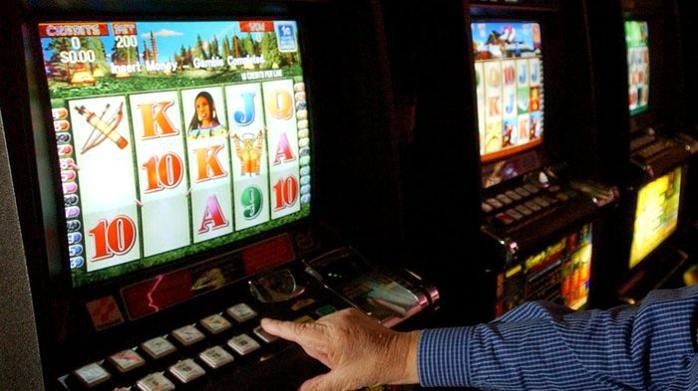An Overview of Gambling History: From the Ancient Era to Modern Casino Games

Gambling has been an important part of human recreation for thousands of years, transforming through societies and eras to become the vibrant casino games we know today. From the ancient Chinese and Romans, who participated in different forms of gambling and chance, to the sophisticated gaming floors of contemporary casinos, the allure of gamble and reward has fascinated individuals across the globe. The shift from simple dice games and rudimentary betting setups to the opulent settings of contemporary casinos reflects significant strides in both social norms and technological advancements.
As cultures evolved, so too did the complexity of gambling activities, with gambling activities emerging as a distinct category of leisure and excitement. These games have changed from casual gatherings centered around traditional tables to grand, lavish establishments designed to entice players. Today, we investigate this fascinating journey, analyzing how historical practices laid the groundwork for the diverse and thrilling casino activities that bring joy to countless people worldwide.
spintax
Historical Gambling Practices
Wagering has profound roots in human history, with proof of games of chance dating back to ancient societies. Archaeologists have uncovered that as far back as 3000 BC, the people of China were using primitive forms of betting with dice made from wood. Similarly, ancient Mesopotamians engaged in gambling activities, often relying on the tossing of lots or dice to determine results. These early forms of betting served not only as amusement but also played crucial roles in social and cultural customs.
The people of Egypt also took part in betting activities, with games that included betting on the outcomes of various events, including sports and religious festivals. Artifacts such as dice and depictions of gamblers from ancient tombs illustrate that betting was a frequent pastime. It provided both entertainment and a means of engaging in social interaction, often linked to festive occasions or major gatherings. This behavior showed the universal appeal of chance and competition throughout the ages.
In ancient Rome, betting became a widespread practice among the citizens, as shown in references in literature and the establishment of guidelines around certain activities. Romans enjoyed a variety of betting activities, from betting on chariot races to playing games like modern-day board games. The legal structure surrounding these activities began to take shape, establishing the foundations for gambling regulations that would grow in the centuries to come. The prevalence of gambling during this period set the stage for the development of casino games in the future. tỷ lệ nhà cái
The Development of Casino Games
Casino games have gone through notable transformations from their roots to the modern-day entertainment selections. In ancient civilizations, gaming was commonly connected to ceremonial practices, with dice games found in Mesopotamia and betting on the outcomes of events in classical Rome. These primitive forms of gambling laid the foundation for the organized games we see today. The transition from informal gambling to organized games occurred as societies began creating rules and venues for wagering, reflecting cultural values and practices.
The medieval period saw the rise of card games, which gained popularity among the nobility of Europe nobility. Games like primero and baccarat became mainstays in social gatherings. The development of printing technology further enabled the spread of playing cards, making them more available to the masses. As gambling houses began to increase, these card games evolved into different forms that catered to wider audiences, eventually leading to the establishment of casinos as specialized venues for gaming.
The 20th century marked a significant point in the evolution of casino games, with the rise of commercial casinos in Vegas and other gaming hubs. This era saw the introduction of games like video slots and modern versions of table games, complete with advanced graphics and detailed betting structures. The advent of online casinos in the late 1990s additionally changed the gaming industry, allowing players to access a vast array of casino games from the safety of their homes. Today, casino games continue to evolve, blending time-honored elements with cutting-edge technology to create immersive experiences for players globally.
Contemporary Gambling Laws
In recent years, the landscape of gaming regulations has changed significantly, especially as technology and online gaming have become ever prevalent. Regulatory bodies around the world have introduced numerous regulations and guidelines to ensure that gaming activities are carried out justly, with responsibility, and openly. These laws often encompass factors such as licensing, advertising, gambler protection, and sensible gambling measures. Authorities aim to reduce problems such as gambling addiction and cheating while promoting a equitable gambling environment.
The emergence of online gambling sites has necessitated a fresh approach to oversight. Many legal areas have established dedicated online gaming frameworks that serve online gaming, enabling operators to offer their services legally. These frameworks often demand operators to obtain licenses, adhere to strict safety standards, and offer customer support options to help players. By closely supervising internet activities, authorities can more effectively protect consumers from potential harm and ensure that gaming is carried out in a protected manner.
Furthermore, contemporary gaming regulations are progressively centering around sensible gambling initiatives. Many gaming establishments and internet-based platforms now implement features such as player exclusion, deposit limits, and breaks to help players control their gambling habits. Awareness campaigns aimed at educating about the dangers of gaming are also widespread. As the industry continues to expand, the focus on sensible gaming continues to be a fundamental principle of governing efforts, showing a dedication to encouraging a secure and enjoyable gambling experience for all players.
